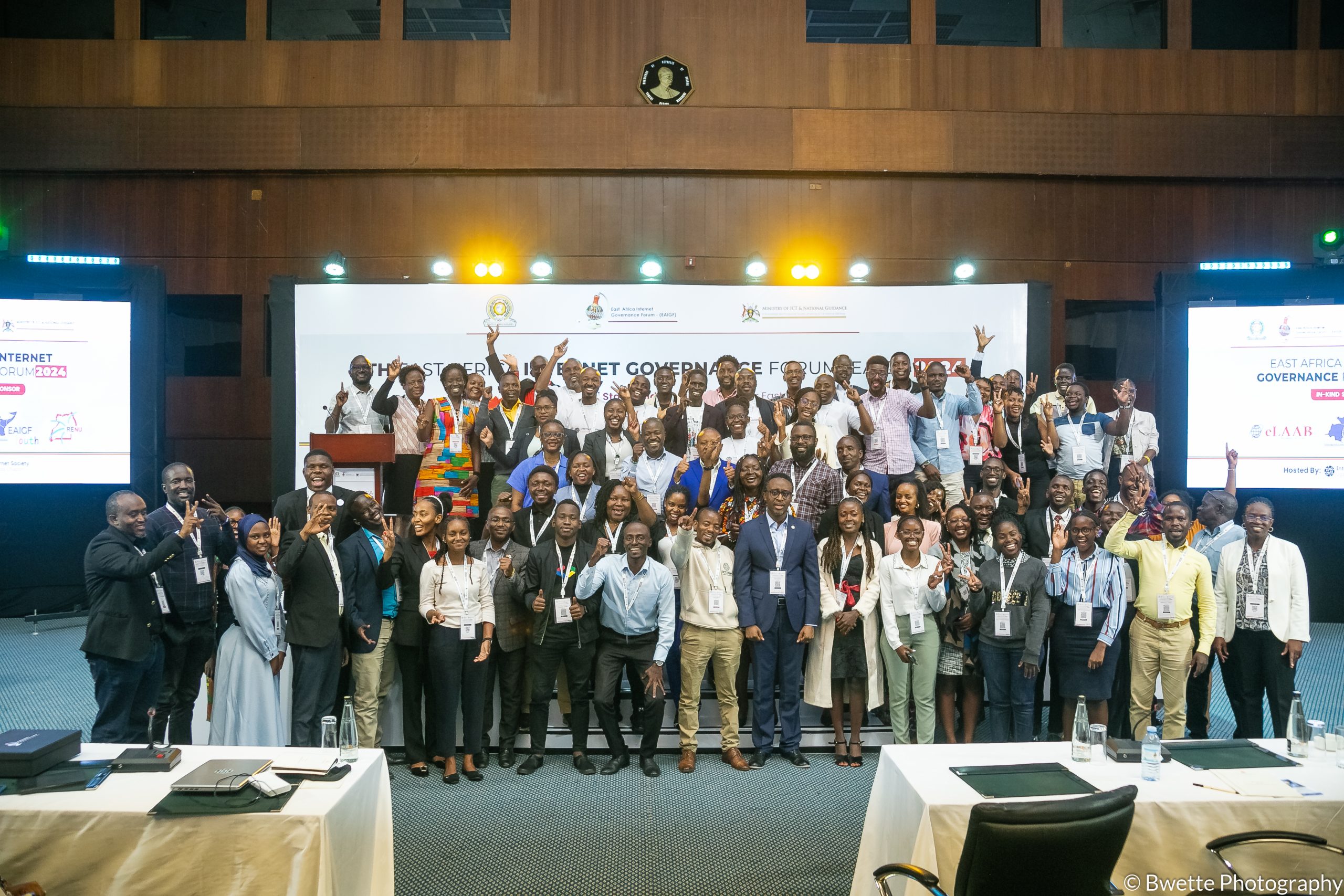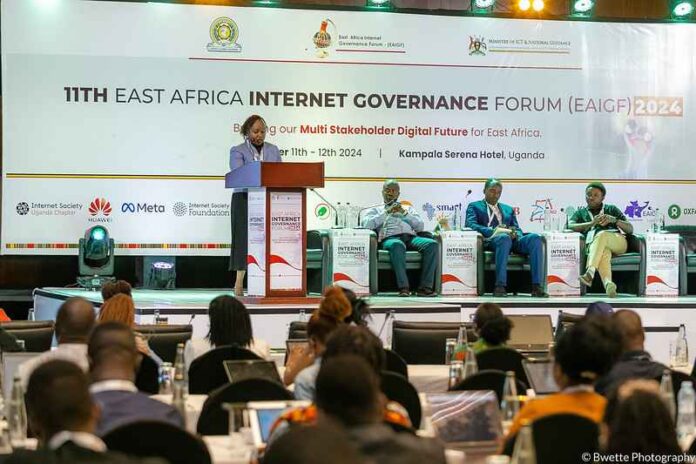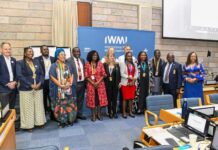|
Getting your Trinity Audio player ready...
|
By Winnie Kamau
Kampala, Uganda: During the 11th East Africa Internet Governance Forum held in Kampala, representatives from six countries presented their respective Internet Governance reports. These reports provided insights into the current state of Internet Governance within each country, highlighting key developments and challenges.
Jean Paul Nkurnziza, the National Chairman of the Internet Governance Forum (IGF) of Burundi, delivered a striking report that painted a disheartening picture of the country’s fragile internet infrastructure.
Nkurnziza addressed a room full of attendees, emphasizing the significant struggles faced by Burundi due to frequent power outages and fuel shortages. These persistent challenges pose a formidable obstacle to the telecommunications authority and hinder the country’s internet connectivity.
“We have 5,000km of Fiber optic covering 18 provinces of Burundi. Our internet penetration is 20% and ISPs have to switch off the internet because of power shortage” explained Jean Paul.
Adding “They use fuel to power but currently there’s a serious fuel shortage in Burundi and we are wondering if we can innovate and switch to solar energy as an alternative to power the internet infrastructure” he noted
 The recommendation to switch to solar energy had been made many times before, but it was still out of reach for most. With time running out, the official shifted his focus to the most urgent message that collaboration was key.
The recommendation to switch to solar energy had been made many times before, but it was still out of reach for most. With time running out, the official shifted his focus to the most urgent message that collaboration was key.
“To truly make a difference, we need to empower local communities to take charge. This requires regulatory support from the government and engagement from all of you,” he said, turning to the participants.
“It’s no longer just about providing access; it’s about building the capacity of communities to maintain and grow that access sustainably” noted Jean Paul.
Across the room, participants nodded in agreement, some already thinking of solutions to bring back to their countries.
During the discussion, Arsene Tungali, the Lead of Internet Governance, presented information about the Democratic Republic of Congo, a neighboring country.
“So I’ll just go ahead on the 5th of June. We have our second edition of the school on internal governance. That’s brought together. Mostly young people for which it was the first time to hear about it and the governments but it started with a one week online course with the support of Internet society, and then we had a physical gathering in Kinshasa on June 5th” noted Tungali.
Rosemary Koech- Kimwatu the Chair of Kenya’s Internet Governance Forum shared an update on Kenya’s progress. “In Kenya, we’ve made strides in advancing digital inclusion,” she said.
Adding “From organizing internet governance forums to holding national discussions on cybersecurity, we’ve learned that collaboration is everything.”
Other countries echoed similar sentiments. Rwanda’s Internet Governance Chair Grace Ingabire proudly announced their recent launch of the first AI school focused on ethics and governance. “It’s not just about technology,” she said. “It’s about how we use it responsibly.”
Tanzania shared their journey in bridging the gender gap in digital spaces. “We’re bringing more women into the fold. At our latest forum, women’s participation was at 19%, and we’re working to increase that” Internet Governance Lead for Tanzania, Nazar Nicholas said.
Adding “Our now menu of discussion we had about three panels and Ai and image of Technology. The second one was on human rights online And also we had the interim governments and role in building Tanzania’s majestical future” Nazar noted
Within the context of South Sudan, it was presented by Steven Ngwech focused on building a multi stakeholder digital future in South Sudan.
“The IGF has come at a crucial time when the Republic of South Sudan is developing its National Digital Transformation strategy”
Last week, South Sudan reported they held its annual meeting, focusing on the role of the Internet and good governance in addressing misinformation, disinformation, digital regulation standards, and their importance.
“In a previous session, we extensively discussed the role of Artificial Intelligence (AI) in this endeavor and the world is not waiting for us. So it is high time for us to start discussing how to regulate these technologies and how to even use them” noted Steven.
Maureen Agena ISOC Uganda represented the Internet Governance report of Uganda where they Youth IGF met and requested for discussions with policy makers
“To share some of the key highlights from the report on the Youth Internet Governance…One of the agreements was localization of policies across different regions of Uganda to allow citizens to actively participate in Uganda” noted Maureen.
The highlights of Uganda’s report also looked at the Digital taxes that are bedeviling the country noted Maureen.
“There was a specific call to the Internet Society of Uganda to organize a session with the parliamentary commission on legal Affairs to reduce on value added tax and excise duty on internet costs. If you have been following the trends around internet discussions in Uganda. Am sure you know about the bills that have been in parliament and the blockages we have had on social media and the taxes for third party internet service providers” said Maureen.
As the forum concluded, it became evident that the internet is no longer a luxury but a necessity for progress in East Africa.
For Burundi, investing in renewable energy and empowering local communities are crucial steps towards a more sustainable and connected future.














